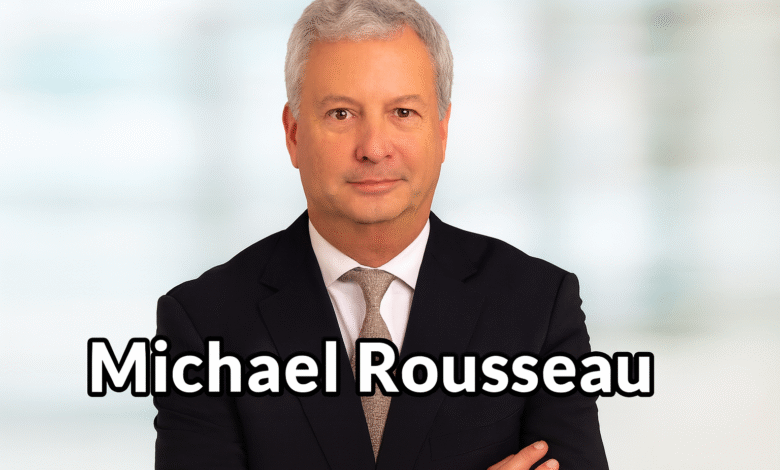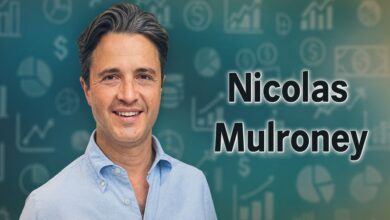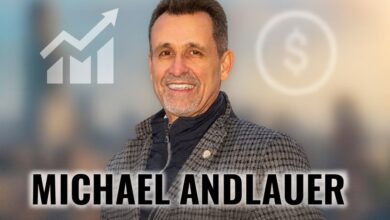Michael Rousseau – Visionary CEO of Air Canada | Triumphs and Challenges in Leadership
Leading Air Canada with Vision, Resilience, and Strategic Innovation

Introduction
Michael Rousseau has established himself as one of Canada’s most prominent business leaders, guiding Air Canada through both its greatest challenges and remarkable achievements. Known for his financial expertise, strategic foresight, and leadership resilience, Rousseau has left a significant mark on the aviation industry. His journey from a young finance professional to the CEO of Air Canada reflects determination, vision, and the ability to navigate turbulent times in global aviation.
Quick Bio
| Category | Details |
|---|---|
| Full Name | Michael Stewart Rousseau |
| Nationality | Canadian |
| Education | BBA – Schulich School of Business, York University; Chartered Accountant (1983); FCA & FCPA |
| Birthplace | Cornwall, Ontario, Canada |
| Current Role | President & CEO of Air Canada (since 2021) |
| Award | Canada’s CFO of the Year (2017) |
| Major Affiliation | Board Director at Resolute Forest Products; active with CPA Ontario, IATA, Star Alliance |
| Compensation (2023–24) | Approx. CA$12.08 million (salary, stock, bonus) |
Early Life and Education
Michael Rousseau was born and raised in Cornwall, Ontario, a community that shaped his early outlook on life and responsibility. Growing up in this environment, he developed an appreciation for hard work and discipline that later defined his career.
He pursued his higher education at the Schulich School of Business at York University, graduating with a Bachelor of Business Administration (BBA) in 1981. His dedication to finance and accounting led him to become a Chartered Accountant in 1983, setting the stage for his future leadership in the corporate world. Rousseau was later awarded the FCA and FCPA designations by CPA Ontario, acknowledging his exceptional contributions to the accounting profession and corporate leadership.
Beginning of a Remarkable Career
Rousseau started his professional journey with Deloitte Haskins & Sells (now Deloitte Canada), where he articled and gained early experience in financial management. His first major role came at United Cigar Stores in 1984, where he served as an accounting manager. By 1986, he had joined Magna International, a leading automotive supplier, working in financial planning. His sharp analytical skills quickly earned him recognition.
In 1987, Rousseau returned to United Cigar Stores at a higher capacity, solidifying his early corporate reputation. These early career moves demonstrated his ability to adapt, innovate, and lead with financial precision.
Rise Through Executive Finance
The 1990s marked a turning point in Rousseau’s career. In 1993, he became the Chief Financial Officer of Silcorp Ltd., where he managed the restructuring of Mac’s Convenience Stores. He played a key role in negotiating the sale of the company to Alimentation Couche-Tard, a major Canadian retail success story.
Rousseau later joined Moore Corporation Ltd. in Chicago as CFO, gaining valuable international exposure. His leadership extended across borders, giving him insight into both Canadian and global markets. This experience was invaluable as he transitioned into even larger corporate roles.
Hudson’s Bay Company Leadership
In 2001, Rousseau became the CFO of Hudson’s Bay Company (HBC), one of Canada’s most iconic retail brands. Following a 2005 takeover, he was appointed President of HBC, where he led strategic repositioning during a period of transformation. His work at HBC demonstrated his ability to guide legacy companies through modernization, maintaining relevance in competitive markets.
Air Canada Journey
Appointment as CFO
Michael Rousseau joined Air Canada in October 2007 as Executive Vice President and Chief Financial Officer. This was a challenging period for the airline industry, but Rousseau proved to be a stabilizing force.
He modernized financial systems, restructured pension funds, and ensured the airline was better positioned to face future disruptions. His dedication was recognized nationally when he was named Canada’s CFO of the Year in 2017.
Deputy CEO and Strategic Leadership
By 2019, Rousseau was promoted to Deputy CEO & CFO, expanding his responsibilities beyond finance. He oversaw operations, strategy, and initiatives such as Air Canada Rouge, showcasing his versatility as a corporate leader.
Becoming CEO of Air Canada
In February 2021, Rousseau was appointed President and CEO of Air Canada. His leadership came during one of the toughest times in aviation history: the global pandemic. Rousseau faced the dual challenge of rebuilding customer confidence and ensuring financial stability.
Achievements and Recognition
Rousseau’s tenure has been defined by both achievements and controversies. On the positive side, he led Air Canada’s recovery strategy, focusing on cost efficiency, new route development, and international competitiveness. His financial acumen ensured that Air Canada remained resilient despite global aviation challenges.
He has also been recognized for his contributions to Canadian business leadership, most notably receiving the CFO of the Year Award in 2017. This acknowledgment highlighted his ability to not only manage numbers but also inspire confidence in shareholders, employees, and the Canadian corporate community.
Compensation and Financial Profile
As CEO of Air Canada, Rousseau’s annual compensation reflects his high-level responsibilities. In 2023–24, his total compensation was estimated at CA$12.08 million. This package included a base salary of about CA$1.3 million, stock awards worth CA$7.8 million, and bonuses of around CA$3 million.
His primary source of income is his leadership role at Air Canada, supplemented by stock holdings and board positions.
Challenges and Criticism
While Rousseau has been praised for his financial discipline, he has also faced criticism. In 2021, he was publicly scrutinized for not being fluent in French, despite leading Canada’s largest airline headquartered in Montreal. In response, Rousseau pledged to improve his French, demonstrating respect for Quebec’s linguistic and cultural identity.
This incident reflected both the challenges of national leadership in Canada and Rousseau’s willingness to adapt and learn.
Legacy and Impact
Michael Rousseau’s legacy is tied closely to Air Canada’s transformation. He is credited with ensuring financial stability during difficult times and leading modernization efforts. His leadership highlights the balance between positive achievements—like corporate growth and recognition—and challenges, including cultural expectations and public scrutiny.
Rousseau’s ability to endure criticism while steering Air Canada forward reflects resilience, adaptability, and a long-term vision for success.
Conclusion
Michael Rousseau’s journey from a small-town upbringing in Cornwall, Ontario, to the CEO of Air Canada is a story of vision, dedication, and perseverance. His career demonstrates the power of financial expertise, strategic thinking, and adaptability in leadership.
While his path has included both praise and criticism, Rousseau continues to embody the determination required to lead one of the world’s most respected airlines. His positive achievements outweigh challenges, and his commitment to growth cements his place as a transformative figure in Canadian business history.
Frequently Asked Questions (FAQ)
Q1: Who is Michael Rousseau?
Michael Rousseau is the President and CEO of Air Canada, a Canadian business leader with decades of experience in finance and corporate leadership.
Q2: What is Michael Rousseau’s educational background?
He holds a Bachelor of Business Administration (BBA) from York University’s Schulich School of Business and is a Chartered Accountant with FCA and FCPA designations.
Q3: When did Michael Rousseau become CEO of Air Canada?
He was appointed CEO in February 2021.
Q4: What awards has Michael Rousseau received?
He was recognized as Canada’s CFO of the Year in 2017 for his outstanding contributions to corporate finance and leadership.
Q5: What challenges has Rousseau faced as CEO?
He has managed Air Canada through the pandemic recovery and faced criticism for not being fluent in French, which he addressed by pledging to improve his language skills.



